'House Of The Dragon': Why Didn't Rhaenys Kill The Greens?

- Oops!Something went wrong.Please try again later.
The Queen Who Never Was had a literal groundbreaking moment in HBO’s “House of the Dragon.”
When Princess Rhaenys, riding her dragon Meleys, burst through the floor and dramatically confronted Alicent and the newly crowned Aegon II, she had a chance to end it all and prevent the Dance of the Dragons, the civil war between the Blacks and the Greens over who should rule the Seven Kingdoms.
All she had to do was say "Dracarys."
And yet she merely took a defiant stance with a dash of dragon flourish and flew off — presumably to alert Team Black in Dragonstone. Why not prevent war?
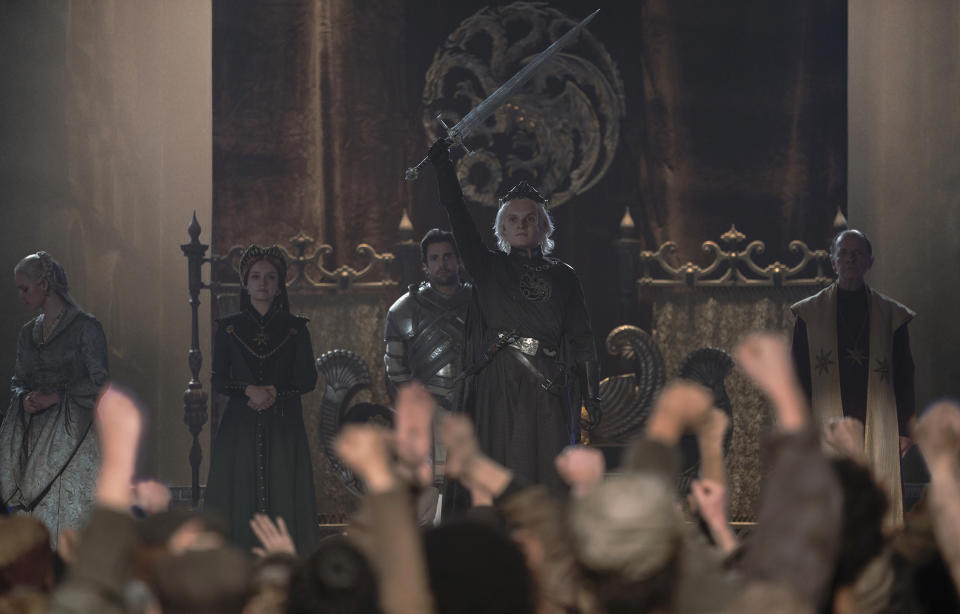
Note: This article discusses characters and plotlines through the first nine episodes of “House of the Dragon.”
The showrunners offered up some ideas. Miguel Sapochnik told HBO’s “Inside the Episode” that Rhaenys’ “moral standpoint” became the “reason for her inaction rather than action.”
Ryan J. Condal, who is also the co-creator of the series along with George R.R. Martin, said: “She knows that if she sets fire to that dais, she ends any possibility of war and probably sets peace throughout the realm, but I think probably doesn’t want to be responsible for doing that to another mother. And it’s a complex choice and one that people might dispute or have a problem with, but that’s the choice Rhaenys makes in that moment.”
Set aside the fact that such a ruthless move ends the show in one season, it’s still an unsatisfying answer. But let’s explore this fantasy world from Rhaenys’ point of view.
Trapped by the patriarchy
The wife of Lord Corlys Velaryon, the Lord of the Tides and head of Driftmark who has been wounded and missing in action for years now, grew up in a violent, male-dominated society. Indeed, she has suffered indignity at the highest level after being snubbed as heir to the Iron Throne — multiple times.
“House of the Dragon” begins in 101 AC (after the conquest of Aegon the Conqueror — look here if you’re confused by all the Aegons) at the Great Council, when the matter of who should succeed King Jaehaerys I, the longest-reigning Targaryen monarch, is settled. Rhaenys is the daughter of Aemon Targaryen, Jaehaerys’ son and chosen heir. But when Aemon dies before Jaehaerys, instead of choosing Rhaenys, Aemon’s only child, the king bypasses her to choose Baelon, his other son. When Baelon, too, predeceases Jaehaerys, the king calls the aforementioned council, and the nobles vote to name Baelon’s son, Viserys, as heir.
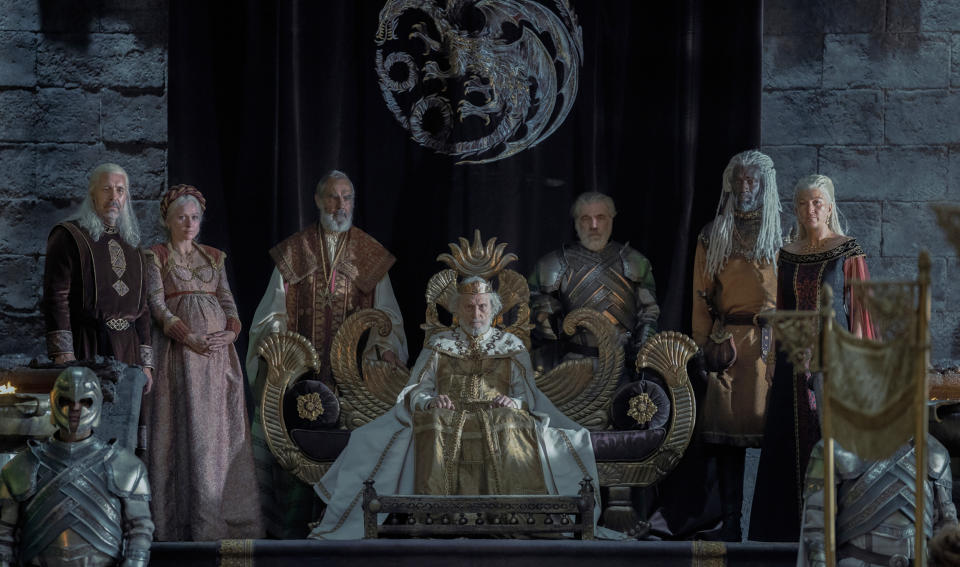
It’s no wonder then that Rhaenys warns young Rhaenyra in the second episode: “I understand the order of things. I’m not sure you do.” She then predicts what ends up happening in the rest of the season with Viserys remarrying, having male heirs and inadvertently sowing the seeds of war.
“Here is the hard truth which no one else has the heart to tell you,” she tells Rhaenyra. “Men would sooner put the realm to the torch than see a woman ascend the Iron Throne.”
Even her home, Driftmark, is not immune from that sentiment. Rhaenys raises objections to Corlys’ desire to name Lucerys his heir, since he is clearly not Laenor’s son; she instead wants Baela or Rhaena to succeed him. Corlys, Lord of the Tides, will have none of it, and the matter is settled. Later on, when Corlys is injured and the issue of succession comes up again, her brother-in-law, Vaemond, also dismisses her opinion because she is a woman (he also had an overall problem with authority and lost his head for it).
Women on the show thus far have been trapped by the Westerosi patriarchy, queens and princesses alike. Remember that Cersei Lannister, for all her flaws, essentially behaved like many men in Westeros and sought to crush her enemies. But she’s still some 200 years off in the future.
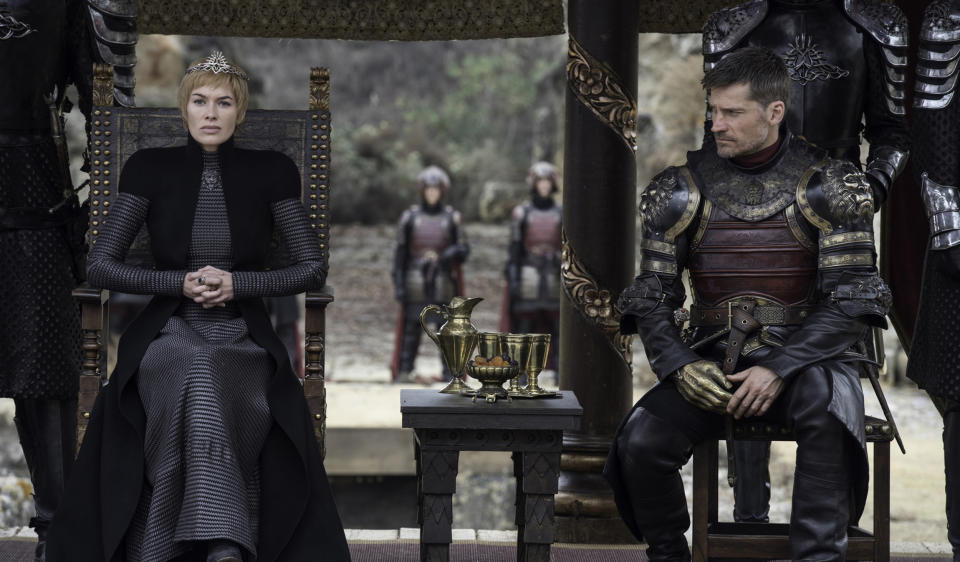
Rhaenys speaks the plain truth about Alicent’s actions. “You toil still in service to men: your father, your husband, your son,” she says. “You desire not to be free but to make a window in the wall of your prison.”
Seeking a female-driven power shift?
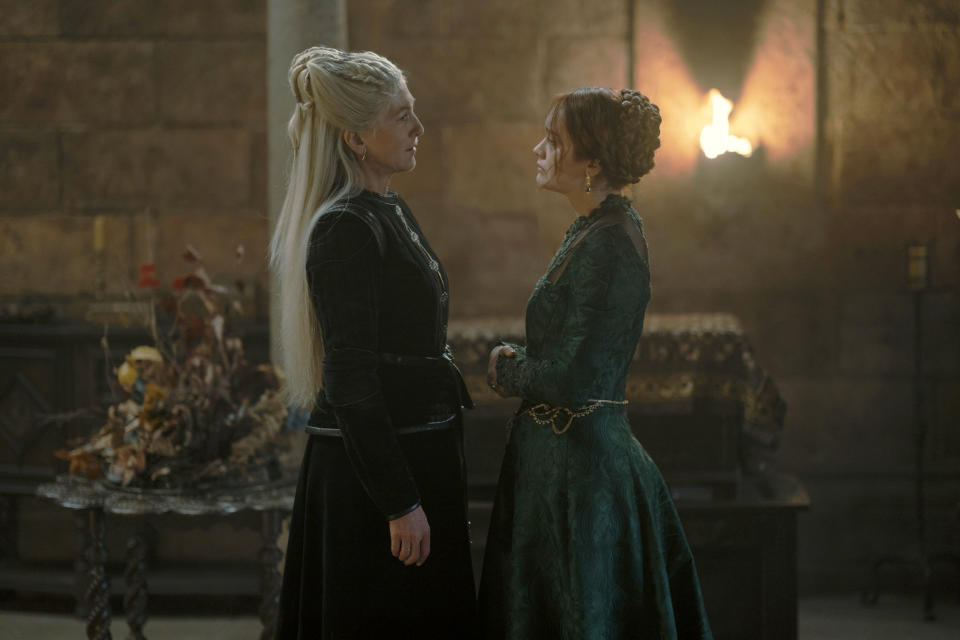
It’s Rhaenys and Alicent’s pivotal heart-to-heart in the ninth episode where the showrunners make their best case for the princess’s inaction. Rhaenys almost seems to suggest a radical move — an alliance of sorts among the women.
“Have you never imagined yourself on the Iron Throne?” she whispers to Alicent.
It’s not so far-fetched to think that if Westerosi women had equal power, they might’ve prevented war. Think about how Alicent and Rhaenyra reached a detente after the Last Supper. Particularly as mothers, they realize that going to war means certain destruction on both sides.
Alicent has already been thinking strategically about how to limit bloodshed while carrying out what she believes to be Viserys’ dying wish: for Aegon to become king. She begs her son to ignore Otto Hightower and spare Rhaenyra. “We do not rule, but we may guide the men that do, gently away from violence and sure destruction and instead toward peace,” she says.
“A true queen counts the cost to her people,” she also tells Rhaenys. Alicent not only seems to be banking on influencing Aegon’s rule, but she also hopes to keep Rhaenys and her dragon out of play so Rhaenyra will negotiate.
Alicent knows that the men of the realm won’t be so forgiving. She has already witnessed Criston Cole murder Lord Beesbury in front of the small council without batting an eye, while the Green council and her father plotted to usurp the throne behind her back.
“I will speak the truth we both know. You should’ve been queen,” she tells Rhaenys. “The Iron Throne was yours by blood and by temperament.”
Perhaps, after having this talk, Rhaenys hopes that they can somehow prevent war. “You are wiser than I believed you to be, Alicent Hightower.”
A taboo against kinslaying — and kingslaying
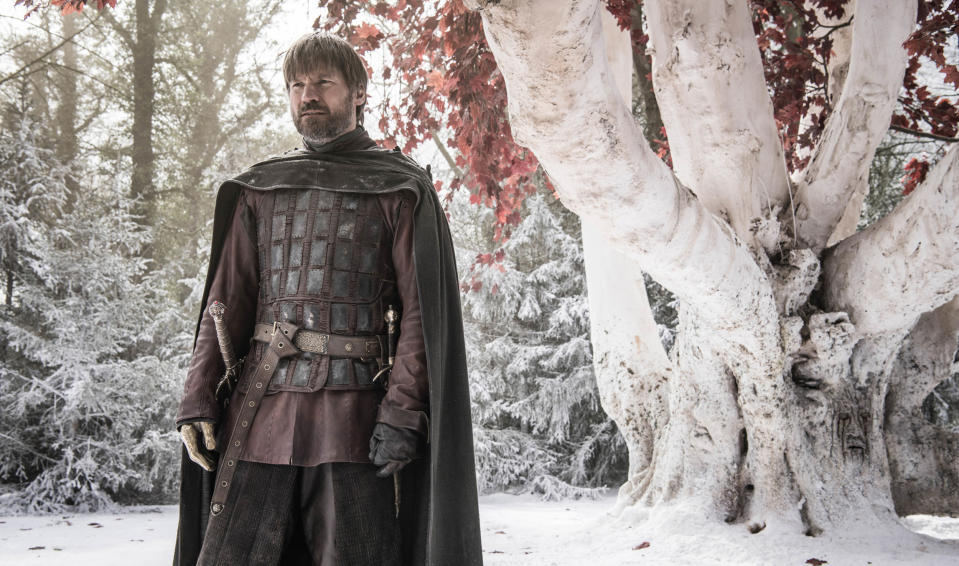
There's another consequential factor in Rhaenys’ decision. While not noted much in the show, in the “Thrones” universe, it’s considered taboo to kill someone in your own family. (Incest? That’s fine in the Targaryen household.)
But anyone who kills someone in their own family is considered to be cursed and will be labeled a kingslayer for life. The same goes for regicide. Had Rhaenys killed Aegon and others on the dais, she could also be considered a kingslayer.
Remember Jaime Lannister? As a member of the Kingsguard, he murdered Aerys II, aka the Mad King, whose insanity and cruelty had grown wild. Nonetheless, Jaime was forever on known as the Kingslayer.
No guarantee of peace
Finally, taking action would have come at an immense personal cost to Rhaenys, who has already lost her children, Laena and Laenor, and possibly her wounded husband, too.
And even if she had burned them, would it have guaranteed peace? Thousands of people in King’s Landing would’ve borne witness to the crime — and many more common folk would’ve perished, too. That’s not exactly a recipe for success in winning the hearts and minds of the people and establishing a stable regime.
Will she come to regret her decision? Stay tuned for the finale and Season Two.
This article was originally published on TODAY.com

